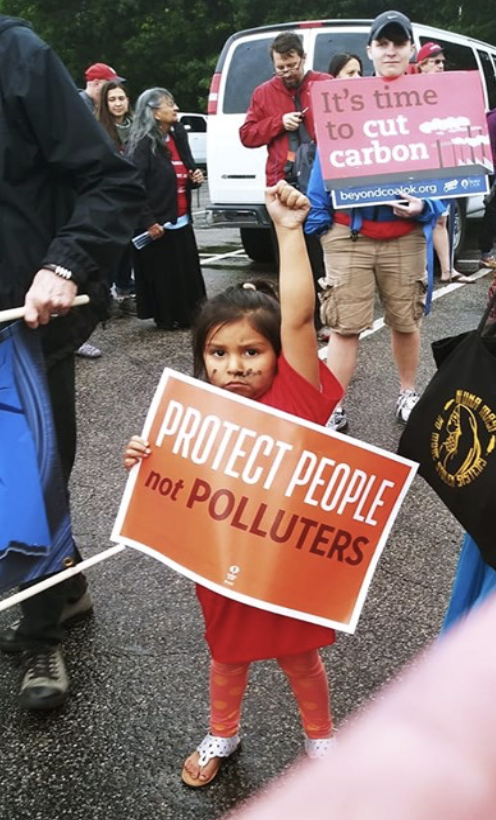
The Frontline Oil and Gas Summit took place May 16th through the 18th in Ponca City, Oklahoma. The conference was held in the epicenter of oil and gas development in the battleground state of Oklahoma, only miles from ConocoPhillips 66 massive refinery, and surrounded by fracking operations as far as the eye could see. The conference was led by an Indigenous Ponca Nation elder, Casey Camp-Horinek.
The summit honored the idea that “Environmental Justice means always standing with frontline communities most impacted—and recognizing that the center of the storm is often where innovation and courage meet to propel our movements forward. We neglect organizing in “sacrifice communities” to the detriment of our movement for meaningful change.”
Casey is a tribal leader within the Ponca Nation, in addition to a movement leader for environmental justice across the entire world. The conference welcomed 160 organizers and activists, 75% of which were living on the frontlines of oil and gas development, including CCJ Organizer Heaven Sensky. Participants spent three days sharing their personal stories with one another and building solidarity across oil and gas frontlines all across the United States, including Alaska. Over the sharing of meals and traditional Ponca ceremonies, participants gained immense power by coming together in support of one another’s work across their widespread places of home.
Casey brought together her immediate and extended family to provide meals and comfort for the guests of the Ponca Nation, who got to share much needed joy from several of her grandchildren as they shared blessed water and laughter with all in attendance.
On the last day of the conference, the Ponca Nation led the summit in a march past the ConocoPhillips 66 refinery to a billboard newly erected by the Missing and Murdered Indigenous Women (MMIW) foundation. The billboard is part of a larger effort to improve policy and increase awareness around the staggering epidemic that is the murder and trafficking of indigenous women across the United States. The MMIW works in Ponca specifically because the presence of work “man camps” in places of high oil and gas activity is a direct threat to the safety and well being of indigenous women.
As the march passed the refinery, Casey’s son, Mikasi, shared with all of those who participated that their community is ravaged with childhood cancers and increased asthma. Given its closeness to the refinery, specifically within 12 miles, the soil on their entire reservation is legally considered contaminated and unsafe to farm and eat from.
What is happening to the native Ponca Nation of Oklahoma as a result of oil and gas development resonates directly with the multifaceted issues surrounding oil and gas development in the coalfields of Southwestern Pennsylvania.
To learn how to support the Murdered and Missing Indigenous Women Organization, visit https://mmiwusa.org
For any questions or to learn more about supporting others in their fight to protect their communities, you can email Heaven at heaven@centerforcoalfieldjustice.org
